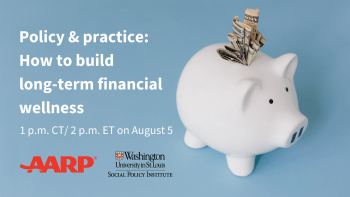Summary Frontline healthcare workers – especially direct care workers (DCWs), such as home health aides, struggle due to low pay, lack of benefits, and difficult working conditions. The need for these workers is growing. Unless frontline healthcare jobs improve, positions may be difficult to fill, and care for vulnerable members of society may be compromised. […]
Financial Well-being of Frontline Healthcare Workers: The Importance of Employer Benefits











